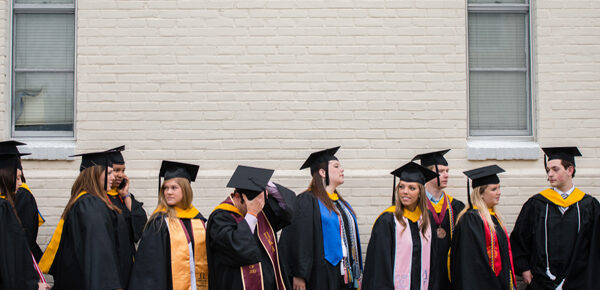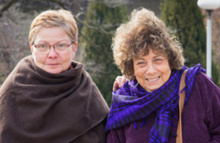Faces of Dreamers: Saira Gonzalez, Michell Hernandez, and Juan Diego Mazuera, University of Florida and Queens University of Charlotte
This is one in a series of posts on individual Dreamers, undocumented immigrants brought to the United States as young children, many of whom are under threat of deportation following the Trump administration’s decision in September 2017 to rescind the Deferred Action for Childhood Arrivals policy, or DACA.
For Dreamers, the upcoming presidential election feels especially crucial.
“It’s just an important thing to do, and I think a lot of people take it for granted,” University of Florida (UF) sophomore and anthropology major Saira Gonzalez said in an article for the Independent Florida Alligator.
“The things that most students experience, we are very isolated [from],” microbiology and cell science senior Michell Hernandez said.
Both women are leaders in an immigrant rights group called UF Chispas and immigrated to the United States from Mexico at ages three and one years old, respectively. As Dreamers, the pair is legally allowed to remain in the United States for the moment, but their status is tenuous. In addition, they are not eligible to vote in the 2020 election, though they have lived in the this country almost their entire lives.
Like them, Queens University of Charlotte student Juan Diego Mazuera also has a lot riding on the election.
“I hope that as people cast their votes in November they’ll remember my story, and support candidates who will work to give Dreamers like me a chance at a stable future, here in the country that we love,” Mazuera said in an article with The News and Observer.
A Dreamer from Colombia, Mazuera came to the United States when he was five months old. As a political science major, he is trying to give back despite the limitations of his status.
“As a Dreamer, I’ve seen first-hand the difference that government policies make in people’s lives,” Mazuera said. “My professional mission is contribute to that effort and help make our country stronger and fairer for everyone.”
Hernandez and Gonzalez, too, are trying to give back and prevent misinformation. Their organization, UF Chispas, is a nonpartisan organization that works to teach people about immigration and help them decide which candidate to vote for based on those facts.
“Trying to understand the holistic approach of a candidate and what you’re voting for is important,” Hernandez said. “I would like people to vote on my behalf with the privilege and power that comes with the right to vote.”
—Zubin Hill
If you have any questions or comments about this blog post, please contact us.


